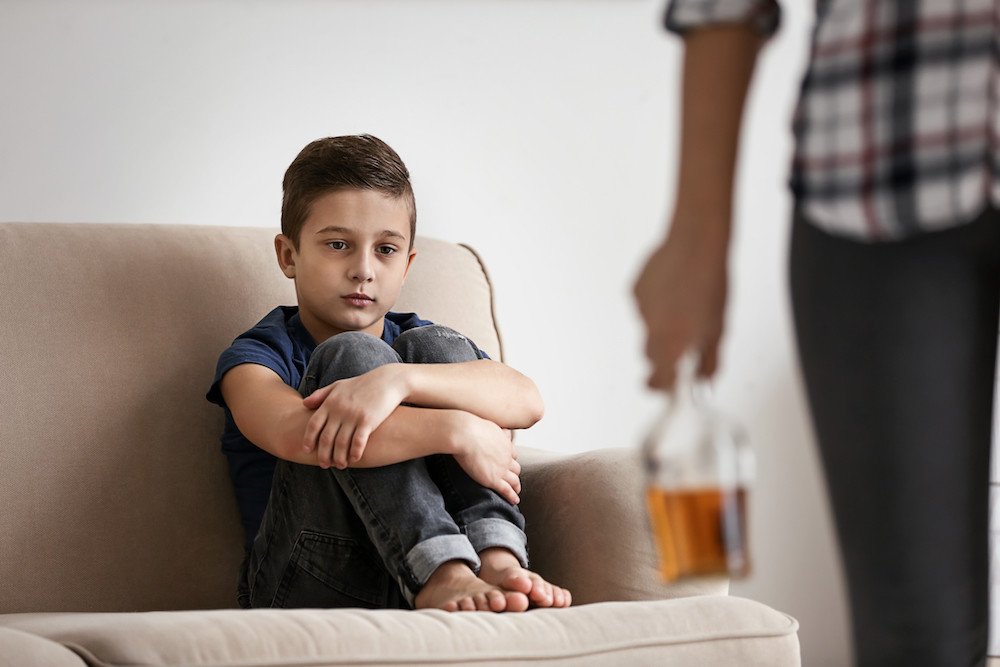Parental substance abuse is a complex issue that affects millions of families worldwide. It impacts the individuals directly involved and has far-reaching consequences for children, families, and communities. In this blog, we will delve into the various aspects of parental substance abuse, its effects on family dynamics, and strategies for support and intervention.
Contents
The Reasons for Parental Substance Abuse

Understanding the reasons behind parental substance abuse is crucial for addressing this complex issue effectively. While each individual’s situation is unique, several common factors contribute to the development and continuation of substance abuse among parents:
- Stress and Coping Mechanisms: Parenting can be stressful, and parents may turn to substances as a way to cope with the demands and pressures of raising children, managing household responsibilities, and navigating interpersonal relationships. Stressors such as financial strain, marital conflict, or work-related difficulties can also contribute to substance abuse.
- Peer Influence and Social Environment: Social factors, including peer pressure, influence from friends or family members who use substances, and exposure to environments where substance use is normalized, can play a significant role in the development of substance abuse among parents.
- Lack of Support and Resources: Limited access to supportive resources, such as counseling, addiction treatment programs, or community support groups, can make it difficult for parents to address underlying issues contributing to their substance abuse. Additionally, societal stigma surrounding addiction may deter parents from seeking help or disclosing their struggles to others.
- Genetics: A family history of substance abuse can increase the likelihood of a child developing similar issues due to genetic predisposition.
- Environmental Factors: Growing up in an environment where substance abuse is prevalent can normalize these behaviors and increase the likelihood of experimentation and eventual addiction.
- Psychological Factors: Underlying mental health issues, such as depression, anxiety, or trauma, can contribute to substance abuse as individuals may turn to drugs or alcohol as a way to self-medicate or cope with emotional distress.
- Social and Peer Influence: Peer pressure, social norms, and the influence of friends or family members who use substances can play a significant role in the initiation and continuation of substance abuse.
- Trauma and Adverse Childhood Experiences (ACEs): Childhood trauma, such as physical, emotional, or sexual abuse, neglect, or household dysfunction, can increase the risk of substance abuse later in life as individuals may use drugs or alcohol as a coping mechanism to numb emotional pain or memories associated with past trauma.
- Lack of Coping Skills: Some individuals may lack healthy coping mechanisms for dealing with stress, emotions, or difficult life situations, leading them to turn to substances as a way to escape or alleviate discomfort.
Impact on Children of Parental Substance Abuse
The impact of parental substance abuse on children can be profound and multifaceted, affecting various aspects of their lives including their physical health, emotional well-being, cognitive development, and social relationships. Here’s a detailed exploration of the effects:
Physical Health Effects:
- Neglect: Parents struggling with substance abuse may neglect their children’s basic needs, including nutrition, hygiene, and medical care, which can lead to physical health problems such as malnutrition, poor hygiene, and untreated medical conditions.
- Prenatal Exposure: Children born to mothers who abuse substances during pregnancy may experience prenatal exposure to drugs or alcohol, leading to birth defects, developmental delays, and long-term health issues.
Emotional and Psychological Effects:
- Trauma: Witnessing a parent’s substance abuse, experiencing neglect or abuse, or being exposed to chaotic and unpredictable environments can be traumatic for children, leading to emotional distress, anxiety, depression, and post-traumatic stress disorder (PTSD).
- Low Self-Esteem: Children of parents with substance abuse issues may experience feelings of shame, guilt, and low self-worth due to their family situation, which can impact their confidence and self-esteem.
- Emotional Instability: Living in an environment characterized by substance abuse, conflict, and unpredictability can result in emotional instability and difficulty regulating emotions among children.
Impact on Family Dynamics

Parental substance abuse can also significantly alter family dynamics, leading to dysfunction, conflict, and instability within the household. Some common effects include:
- Role Reversal: Children may be forced to take on adult roles and responsibilities to compensate for their parent’s inability to function effectively due to substance abuse. This can include caregiving responsibilities, household chores, and financial management, leading to role confusion and stress for children.
- Communication Breakdown: Substance abuse often leads to breakdowns in communication and trust within the family. Parents may prioritize obtaining and using substances over meaningful interaction with their children, leading to feelings of neglect, resentment, and isolation among family members.
- Financial Strain: Substance abuse can drain family finances, leading to economic hardship, debt, and instability within the household. Parents may spend money on substances rather than essential needs such as food, housing, and bills, creating financial stress and tension within the family.
- Conflict and Instability: Substance abuse can contribute to conflict and instability within the family, as parents may engage in arguments, verbal abuse, or physical violence while under the influence of substances. This creates a chaotic and unpredictable environment for children, leading to feelings of insecurity and fear.
- Parental Absence: Parents struggling with substance abuse may be emotionally or physically absent from their children’s lives, either due to being intoxicated or preoccupied with obtaining and using substances. This absence can lead to feelings of abandonment and emotional neglect among children, impacting their sense of security and attachment.
- Family Secrets and Shame: Families affected by substance abuse may experience a culture of secrecy and shame, as parents may try to hide their addiction from others and children may feel embarrassed or stigmatized by their family’s situation. This secrecy can further isolate family members and prevent them from seeking help and support.
- Legal Issues: Substance abuse can lead to legal problems such as arrests, incarceration, or involvement with child welfare services, further destabilizing the family unit. Children may be removed from their parent’s care due to safety concerns, leading to separation and trauma for the entire family.
- Enabling Behaviors: Family members may inadvertently enable the parent’s substance abuse by covering up for them, making excuses, or providing financial support. This perpetuates the cycle of addiction and dysfunction within the family, preventing meaningful change and recovery.
Support and Intervention
Despite the significant challenges posed by parental substance abuse, there are interventions and support systems available to help families navigate these difficulties and promote healing and recovery. Some strategies include:
- Counseling and Therapy: Both individual and family therapy can provide a safe space for family members to process their experiences, improve communication, and develop coping strategies.
- Support Groups: Participating in support groups, such as Al-Anon or Nar-Anon, can offer families affected by substance abuse the opportunity to connect with others who understand their experiences and provide mutual support.
- Child Welfare Services: In cases where children are at risk of harm due to parental substance abuse, child welfare agencies can provide intervention and support, including temporary placement in foster care if necessary.
- Treatment for the Parent: Encouraging parents to seek treatment for their substance abuse issues is crucial for both their well-being and the stability of the family. This may involve detoxification, rehabilitation programs, and ongoing support through counseling or support groups.
How To Manage Parental Substance Abuse?

Managing parental substance abuse requires a comprehensive approach that addresses the needs of both the parent struggling with addiction and the children and family members affected by their substance abuse. Here are some strategies for managing parental substance abuse:
- Seek Professional Help: Encourage the parent struggling with substance abuse to seek professional help from a qualified healthcare provider, addiction counselor, or therapist. This may involve attending individual therapy, participating in addiction treatment programs, such as detoxification, residential rehabilitation, or outpatient counseling, and receiving ongoing recovery support.
- Provide Supportive Services: Offer the parent access to supportive services and resources, including addiction support groups, peer counseling, and community-based organizations specializing in substance abuse treatment and recovery. These services can provide emotional support, practical assistance, and guidance throughout the recovery process.
- Educate and Raise Awareness: Educate the parent and family members about the nature of addiction, its effects on individuals and families, and available treatment options. Raise awareness about the importance of seeking help early, breaking the cycle of addiction, and promoting a supportive and non-judgmental environment for recovery.
- Set Boundaries and Establish Safety: Establish clear boundaries and expectations within the family regarding substance use, behavior, and consequences. Create a safe and stable environment for children by setting limits on exposure to substance abuse, ensuring access to supportive adults, and providing opportunities for open communication and expression of feelings.
- Encourage Healthy Coping Strategies: Teach the parent and family members healthy coping strategies for managing stress, emotions, and triggers associated with substance abuse. Encourage exercise, mindfulness, hobbies, and social support networks as alternative ways to cope with challenges and promote overall well-being.
- Address Co-occurring Issues: Identify and address any co-occurring mental health issues, trauma, or underlying factors contributing to the parent’s substance abuse. Provide access to mental health services, counseling, and support groups to help the parent address these issues and develop effective coping skills.
- Support Children and Family Members: Offer support and resources to children and family members affected by parental substance abuse, including counseling, therapy, and support groups. Create a safe and nurturing environment for children, provide opportunities for open communication, and address their emotional, physical, and developmental needs.
Conclusion
Parental substance abuse is a complex and challenging issue with far-reaching effects on families and communities. By understanding the impact of substance abuse on children and family dynamics and implementing appropriate support and intervention strategies, we can help mitigate the negative consequences and promote healing and recovery for all involved.
